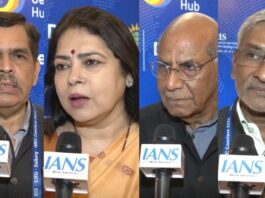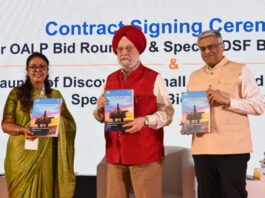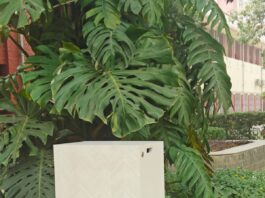New Delhi, February 4. Finance Secretary Tuhin Kant Pandey said on Tuesday that tax reform is an important element of the general budget as it has a huge impact on the rest of the economy. It has been included in Part-A of the budget for the first time.
At the ASSOCHAM post-budget conference, the Finance Secretary said, “Too many taxes can have adverse consequences. We have taken a bold step of not increasing taxes. Our goal is clear, expand the tax base, expand the economy, tax revenue will also increase automatically.”
He clarified that in the last three years, personal income tax has increased by 20-25 percent. There is no benefit in imposing too much tax on a single taxpayer.
He said that the need to create ample opportunities for income generation and create an environment of voluntary compliance has been emphasized.
Tuhin Kant Pandey said, “Budget making is really about balancing various imperatives and one can never keep things separate.”
Pandey said Bharat Trade Net announced in the budget will connect all stakeholders and streamline customs process. It is not just UPI, it has much more potential than that.
He said, “It is no longer limited to compliance of standards; our concept of GST is unmatched in the world and we should be proud of what we have achieved.”
Central Board of Direct Taxes (CBDT) Chairman Ravi Agarwal said, “The approach of the tax department has changed over time. The guiding thought is that the question is not only about collecting tax and tax is basically the result of a part of income, you generate income and then automatically tax revenue comes. Amendments in the Direct Tax Act, changes in tax slabs and exemptions have been seen from this perspective.” He informed that rationalisation of TDS and TCS provisions, decriminalisation of those provisions and the concept of updated returns incorporated in the Budget are aimed at facilitating ease of doing business.
The CBDT Chairman highlighted that the Government is adopting a proactive, rule-based, user-friendly, data-driven and non-intrusive approach with an enabling environment and technology-driven transparent tax administration.
Sanjay Kumar Agarwal, Chairman, Central Board of Indirect Taxes and Customs (CBIC), said, “Customs duty rates have been rationalised in respect of 8,500 tariff lines out of 12,500 tariff lines relating to industrial goods. Agricultural goods and textiles have not been changed due to their highly sensitive nature. These rates have remained unchanged for almost two decades and there is a perception that the rates in India are too high. The rates have now been rationalised to 20 per cent, which were between 70 and 20 per cent, and those which were above 70 per cent have been brought down to 70 per cent. An equal amount of EIDC has been imposed to keep the effective duty at the same rate or slightly lower so that the impact is not sudden.”
In his welcome address, which focused on the analysis of tax-related proposals, ASSOCHAM Secretary General Manish Singhal lauded the government for making the Union Budget 2025-26 in line with public expectations while “ensuring fiscal prudence”. He said the introduction of significant tax relief for the middle class is expected to boost economic growth by increasing savings and consumption.
Additionally, he emphasised the government’s commitment to promoting a business-friendly environment through ease of doing business initiatives and financial regulation, which will help in sustainable business expansion.



